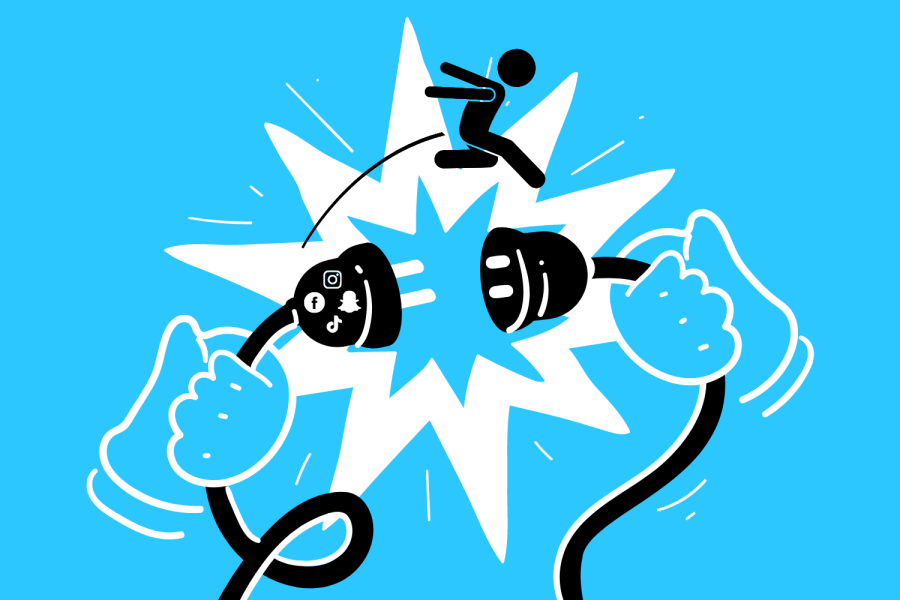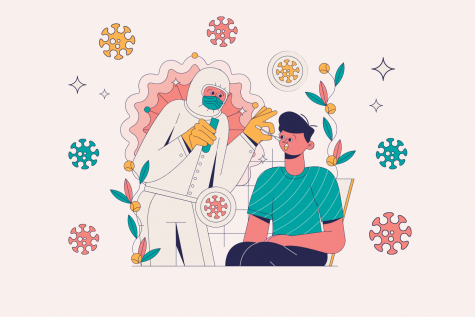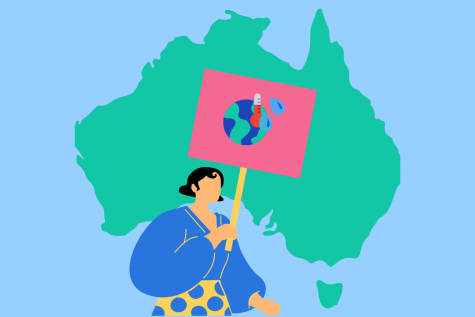It’s Time to Unplug
Analyzing the Effects of Social Media on Mental Health
For the past 10 years, American society has been dominated by social media. From Facebook to TikTok, people of all ages and backgrounds are sharing and discussing their lives with the world at an unprecedented scale. While to some extent social media connects people by allowing for easy communication across distances, research suggests that people, especially teenagers, are lonelier than ever.
A study by child psychologist Jean Twenge and her team found that loneliness in teenagers worldwide nearly doubled between 2012 and 2018 alone. They concluded that the mental and psychological well-being of youth worldwide had declined significantly after 2012, in conjunction with the rise of widespread smartphone access and social media use. Twenge also found in 2017 that depressive symptoms in teens between 8th grade and 12th grade had increased by 33% from 2010 to 2015. Suicide rates for girls in the same age range had also risen by a devastating 65%. As Caroline Miller of the Child Mind Institute explains, “The rise in depressive symptoms correlates with smartphone adoption during that period.”
So why exactly has an invention meant to bring us closer together made us more lonely and depressed than ever before? Experts say there are many impacts social media has had on youth worldwide that have culminated in these shocking statistics. One major factor is the lack of fulfillment that virtual interactions between people offer compared to interactions in real life. Another major impact was decline in self esteem due to teens (especially girls) comparing themselves to others on the internet.
Harvard researchers also found that social media and smartphones in general take advantage of our brain’s rewards system. Because humans are such social creatures, our brain rewards us with the “feel-good” chemical dopamine when we have positive social interactions. Social media sites use likes, comments, and other features to replicate this feeling of social validation. Because our brain seeks dopamine, we are more likely to repeat whatever behavior made us feel good. Due to the nature of our brain’s rewards network, one feels less and less pleasure each time they repeat a rewarding action, forcing them to repeat the action more often and intensely to receive the same chemical reward. This means in the chase for social validation and that “feel-good” pleasure, people use social media excessively—even obsessively.
Experts have also found that the endless mental overstimulation social media and the internet in general provide can put our nervous system into fight-or-flight mode. This can result in anxiety, ADHD, and other psychological disorders.
The best thing we can do to prevent these issues is take care of our own physical and mental health by limiting our social media use. It’s best to keep screen time apart from work and school below two hours daily, and it has been found that only half an hour spent outdoors daily can significantly improve mental health. Physical exercise is also instrumental to improving and preserving our mental and physical well-being. Most of all we should seek to interact with others in person as often as possible to counteract virtual reactions, especially people that we can trust to speak about our thoughts and feelings.











